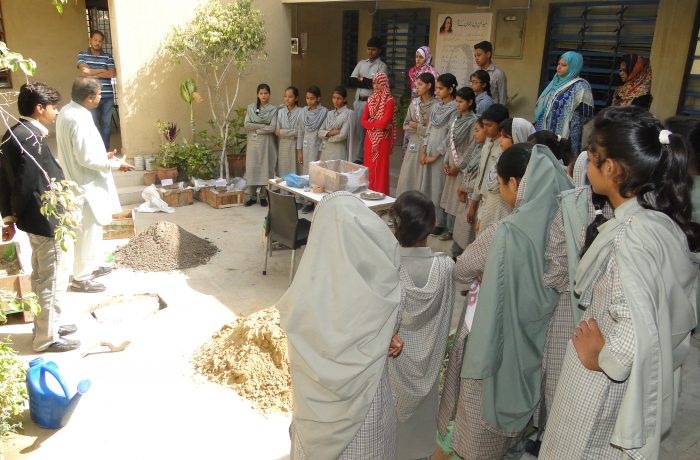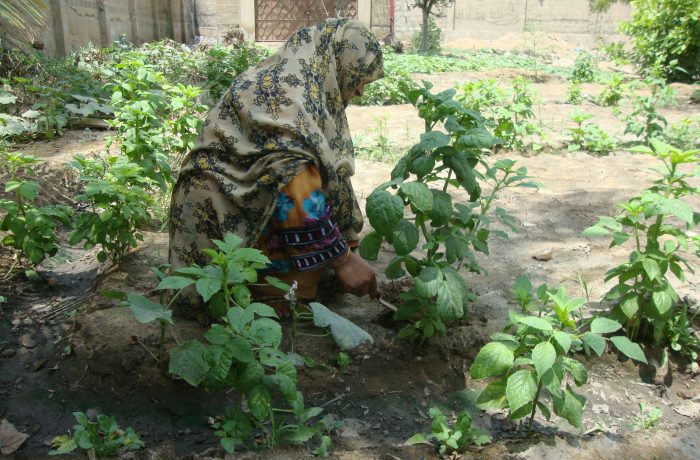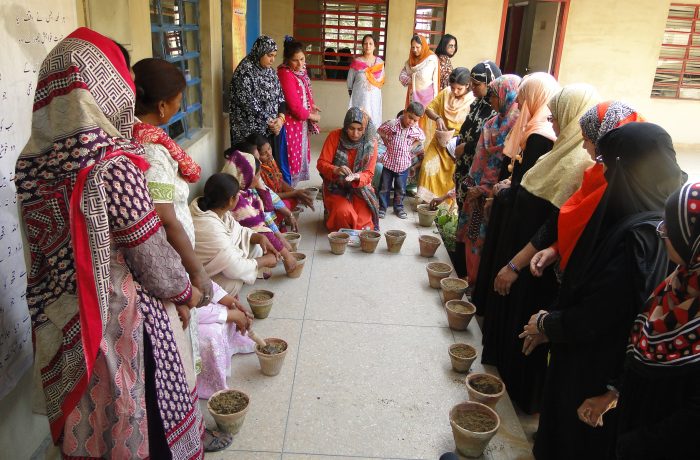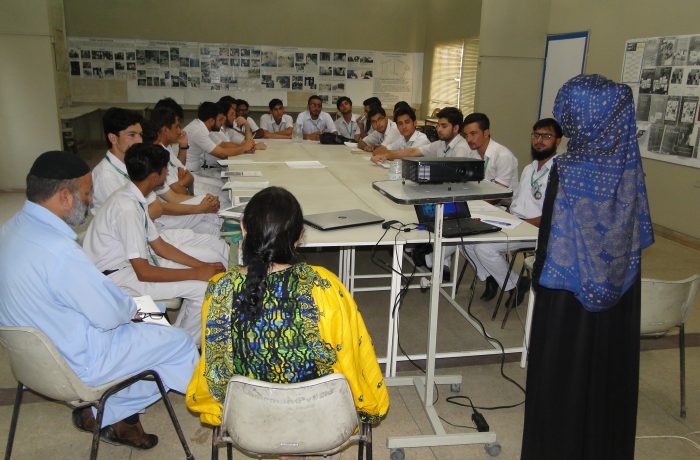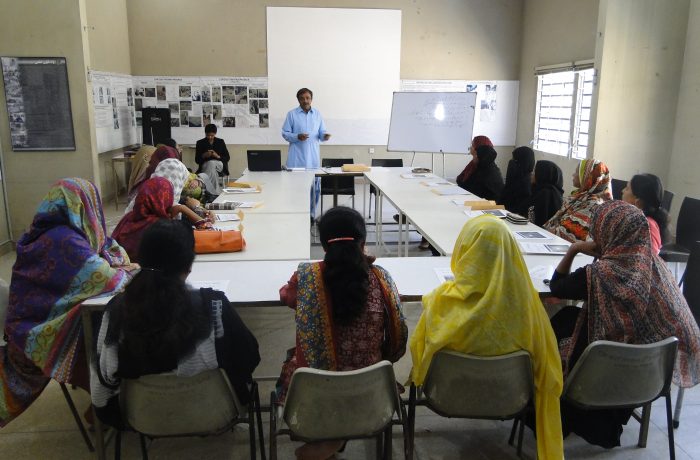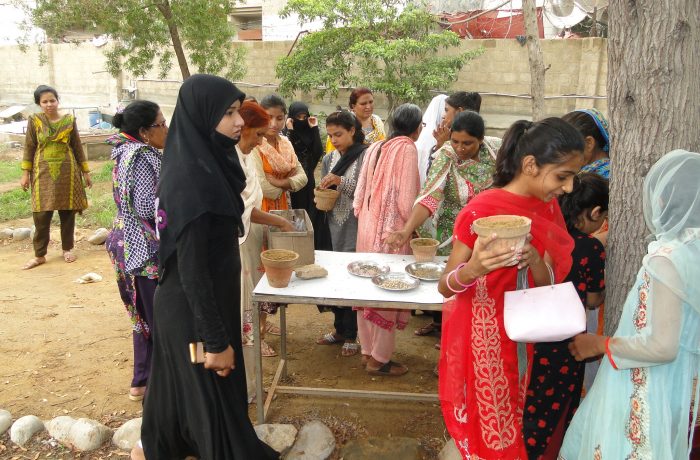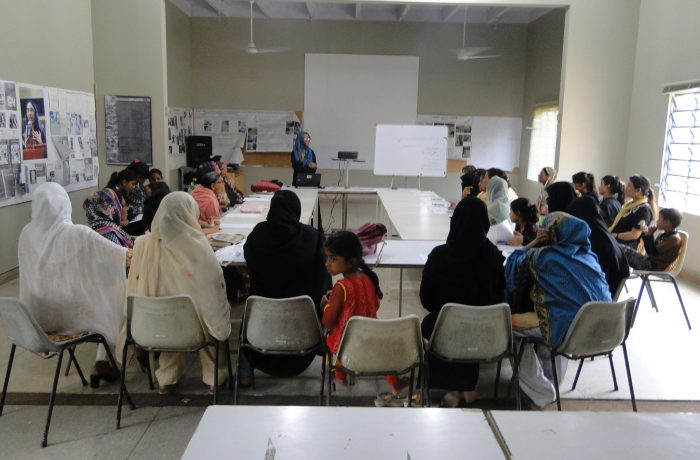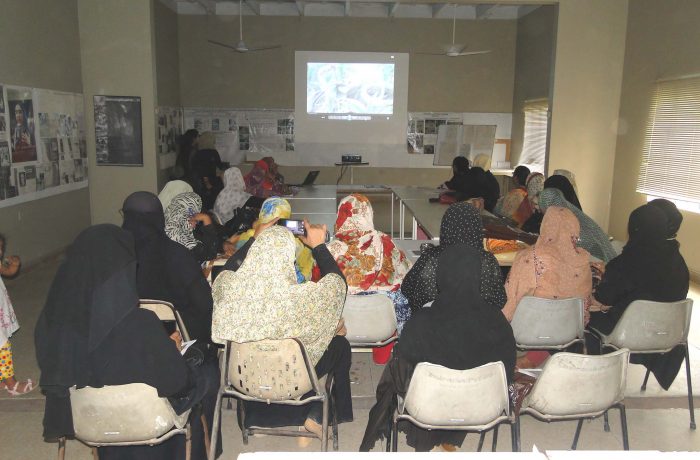KITCHEN GARDENING
Since September 2016, OPP-RTI has started kitchen gardening workshops with women and children. For this program, women who are in our savings groups are given priority. Growing vegetables organically in our homes is better for our health, and in the long run, helps save money which is especially important for people who fall in the low-income category. Also, during our workshops we teach our trainees how to recycle items that are easily found in their home, for example, vegetables can be grown in plastic bottles, broken buckets, and even broken plates. This helps keep costs low for them and also encourages recycling waste. We also teach them how to recycle water in their homes to water the plants. As mentioned, in the long run, it is less expensive to maintain a kitchen garden than it is to buy vegetables. In order to make this possible, we also teach them how to make their own fertilizer (compost heap) and how to harvest and save seeds from their gardens so they do not have to buy these in the future. For children, we encourage them to not only have kitchen gardens at home but also in school. This means that more children will learn through them. Also, it will be very easy for their teachers to include their garden in their existing classes, for example, biology. Our participants go through a class that focuses on the theory related to kitchen gardening, which is also there to help educate them on why kitchen gardening is important and its history, not just on how to plant vegetables. After the theory part of the workshop, they are taken outside for a practical. During the practical, they mix the soil, plant seeds and learn how to recycle found objects. At the end of the workshops, our participants are given pots, seeds, and fertilizer to take home to start their own gardens. After a few weeks, our staff checks in on them to see their gardens and help troubleshoot any problems they may be having.
Below is the yearly data of trained students and women.
Years Students Others Women
2016 61 ———- 311
2017 106 22 133
2018 24 ———– ———–
2019 277 ———– ———–
Total 468 22 444
OPP-RTI hopes to scale up these programs in the near future and to take it outside Orangi (we have already started training women in other areas). We hope to train one thousand women and children per year.
URBAN FARM
RTI has established an organic farm on its premises. We see two main advantages of organic farming: 1) it is beneficial for people’s health and 2) since organic vegetables’ market price is higher than regular vegetables, it can be a potential source of income for people with land (mainly people living in rural areas). As organic farming is new to us, and it presents itself with a whole new challenge for us, we decided to set up a model in our office. We hope that after the current season, we are able to take our model into the rural areas. Another aspect of this will be to connect the market for organic vegetables in the cities to organic farms in rural areas. One main aspect of this is recycling water. There has not been much rainfall in Sindh in the past couple of years and water, through main lines, is unreliable as best. As a result, we felt it necessary to experiment with three different models of recycling water. Currently, we have two filtration systems in the process, a Biosand filter and filtering sewage through sedimentation. The third method, Effective Microorganism Treatment Unit (EMSTU), is being used all over Orangi, Sindh and South Punjab. Sewage treated through these is tested (as E-Coli and high salt levels are detrimental to health) before use in agriculture.
TREE PLANTATION
We have also initiated a program of shade-giving fruit trees in Orangi. This is to help cope with the unprecedented heatwave that has hit Karachi the past two summers. We provide saplings, fertilizer and also a leaflet teaching people how to care for their trees and how to recycle water. To date, we have planted about seven hundred saplings in homes as well as schools in Orangi.
Vegetables, which grows in OPP’s Premises.
Fruits, which grows in OPP’s Premises.

